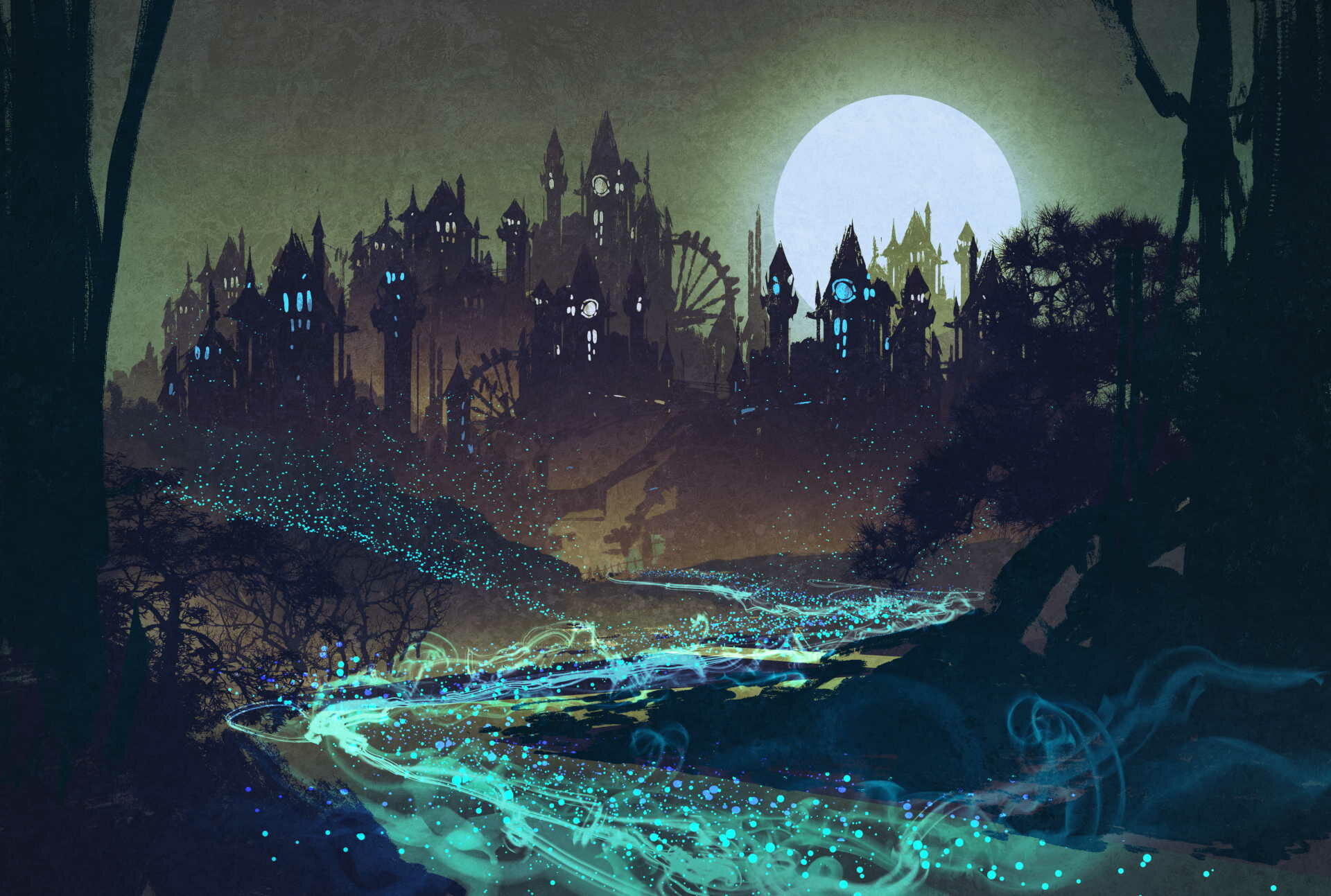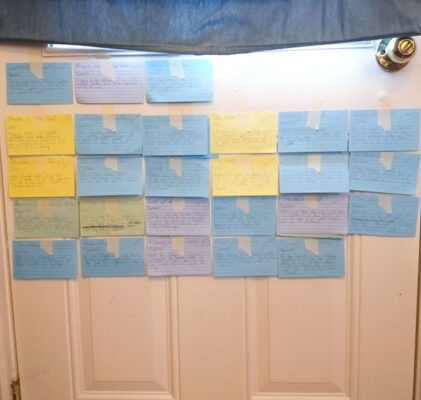Apparently, if you have a secret marriage and an emotional affair, relationship math dictates that you will end up with a love triangle. This came about organically with Stars Fall Out after I developed a couple of the characters more, so I think it deserves its place in the story.
But I’ve been wrestling with resolving it in a non-melodramatic way that deepens the already-existing conflict and doesn’t hijack the rest of the story, kill my ending, or kill my characters, who already have future book storylines.
I’m less confident in this excerpt than in most of the other excerpts I’ve posted. Apparently, it’s tough to write a balanced, reasonable jealous rage.
But he didn’t stop. He hauled himself through streets the color of winter’s muddy death at the hands of a vicious spring, and he came to The House by the Sea Inn.
It loomed up at the top of the hill, a fortification against everything he needed to know and didn’t want to know. His heart thudded in his chest from the exertion of the hills, and only grew heavier, faster like the chugging of machinery.
No one had told him this was where the floppy-haired glass merchant was staying, but he’d pieced it together. The last job of the Rill Ryonin bakery had been a king’s ransom of rolls. They had been sent here, and Tyatavar had been the one to make that delivery.
And after that, hours after that, they’d leaned together against the wall of the locksmith’s shop, their faces lit by firelight that could never touch them.
He had been there with her there in the thick of things, where a son-in-law should be.





